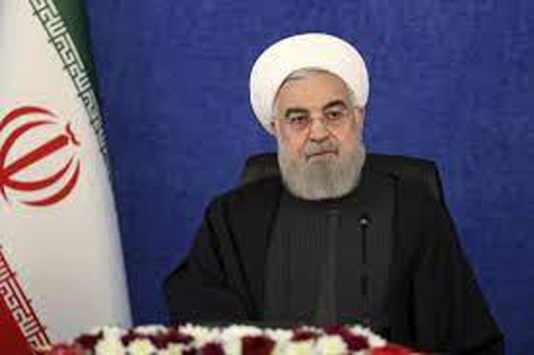TEHRAN, June 15, 2021 (BSS/AFP) – Promising greater openness at home and outreach abroad when he was elected in 2013, Iran’s outgoing moderate President Hassan Rouhani comfortably won a second term but leaves office as a deeply unpopular figure.
Ultraconservative Ebrahim Raisi is widely expected to win the presidency on record-low turnout this coming Friday — an outcome that would set in stone the disappointment of the Rouhani years, marked by crushing economic woes.
Rouhani “wanted above all to liberalise the Iranian economy and develop the private sector’s role… by attracting foreign investment,” said Thierry Coville, a researcher at the Institute for International and Strategic Relations (IRIS) in Paris.
But that strategy was “totally trampled” by former US president Donald Trump.
Three years ago, Trump unilaterally withdrew the United States from a landmark 2015 nuclear accord agreed between Iran and world powers, a deal that had promised sanctions relief in exchange for limits on Tehran’s nuclear programme and a promise never to acquire the bomb.
Trump then slapped sanctions on Iran that choked the economy to an unprecedented degree, including by seeking to stop all the country’s oil exports.
Iran’s economy contracted by more than six percent in both 2018 and 2019, according to the IMF, leaving a bitter taste for the crowds who had swelled into the streets in jubilation when the nuclear accord was first agreed.
The economic malaise has since been exacerbated by the coronavirus pandemic, leaving many Iranians struggling to get by.
– Limited powers –
Targeted incessantly by criticism from ultraconservatives, who accuse the government of “ineffectiveness”, particularly over its handling of the pandemic, Rouhani was left very much on the back foot.
He has sought to defend his policies, attributing failures to Trump’s “economic war” against Iran.
Meanwhile, reformists in his coalition criticised him for abandoning many of his election pledges, particularly in the realm of civic and personal freedoms.
Rouhani has also been criticised for his failure to obtain the release from house arrest of Mir Hossein Moussavi and Mehdi Karoubi, leaders of a protest movement against the re-election of populist president Mahmoud Ahmadinejad in 2009.
Some see such criticisms as unfair.
Rouhani’s record “must be judged against the… powers” available to the president, noted journalist Ahmad Zeidabadi.
Supreme leader Ali Khamenei is the most powerful figure in Iran, and the influence of the president is strongly limited by institutions including the Revolutionary Guards and the Judicial Authority.
– ‘Weakening of middle class’ –
One success Rouhani’s government can point to is an improvement in reach and quality of internet services in the country.
But he was unable to win an end to a ban on Twitter and Facebook, despite his promise to do so, and most of the web remains accessible in Iran only via VPN.
And while the moral police are nowadays less visible on the streets, a movement opposed to obliging women to wear a veil in public spaces was rapidly crushed in 2018.
And two waves of protests were quashed in bloody fashion during Rouhani’s second term — the first in the winter of 2017-18 and the second in November 2019.
Several human rights activists, and defenders of women’s rights in particular, remain behind bars, and some have even seen their sentences increased.
“The educated middle class of the big cities is overall very disappointed in Rouhani,” Coville told AFP.
“People understand what has happened but they would have expected that he would put up more resistance against the advance of the radicals,” Coville added, referring to the ultraconservative camp.
Conservative Iranian analyst Hossein Kanani Moqadam told AFP that Rouhani had himself contributed to his marginalisation.
The president created something of a vacuum by relying on a very small circle of loyalists, cornering the “government into a political impasse”.
For Clement Therme, an associate at the European University Institute in Florence, Italy, the outgoing president’s “biggest success” was to negotiate “a diplomatic compromise with Washington without crossing the regime’s red lines.
His “biggest failure remains the weakening of the middle class” and the working class “revolts” that marked his second term, Therme said.



